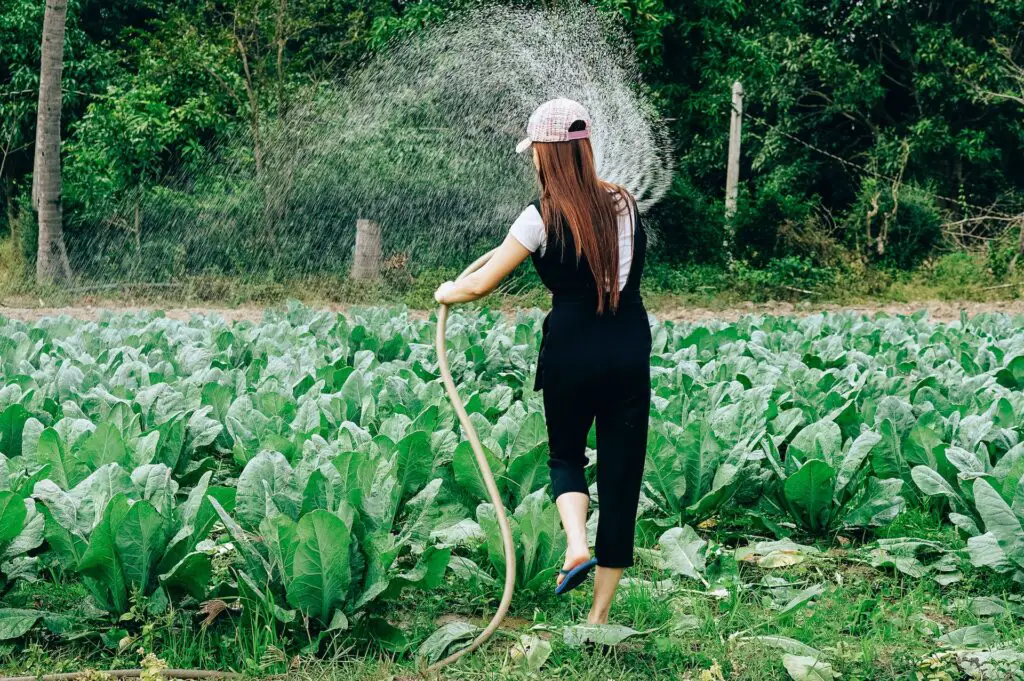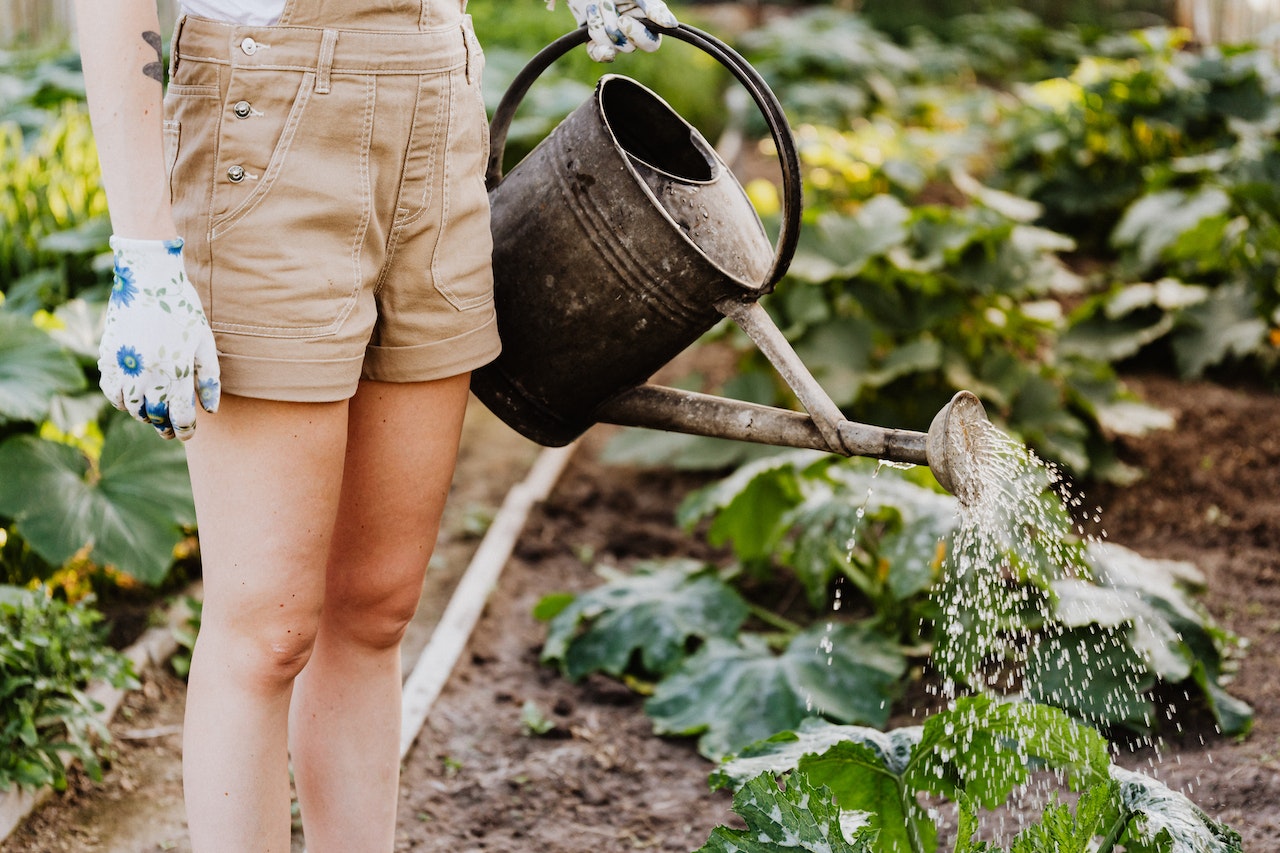Gardening is a rewarding hobby that can provide a sense of accomplishment, a connection to nature, and a source of fresh produce.
Whether you have a small balcony or a large backyard, there are countless plants and techniques to explore.
Check out our complete beginner’s guide to get you started on your gardening journey.
This article contains affiliate links. If you make a purchase through a link on our site you are supporting our continued efforts to educate people like you in finding new and rewarding hobbies. Thank you!
Who can start a garden?
Anyone can start a hobby of gardening! Gardening can be a fun and rewarding hobby for people of all ages, abilities, and backgrounds.
It is a great way to connect with nature, get some exercise, and grow your own food or beautiful flowers.
Whether you have a large backyard or just a small balcony, there are many ways to get started with a gardening hobby.
To start gardening, you will need to choose a location for your garden, prepare the soil, and select the plants you want to grow.
You will also need to water and care for your garden regularly. You can start small by growing a few herbs or vegetables in pots, or you can try your hand at landscaping a larger outdoor space.
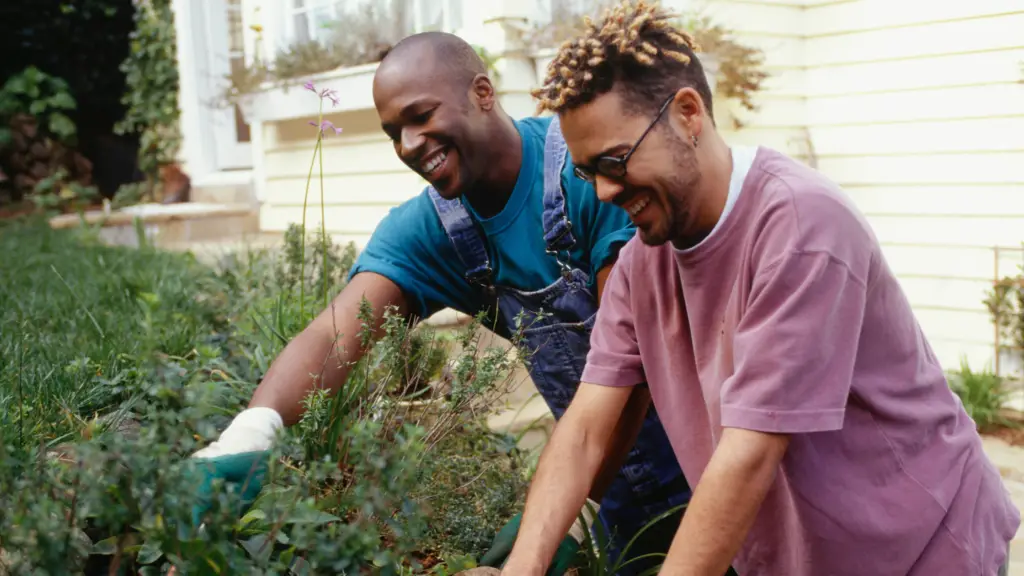
How do you start gardening?
Starting a garden can be a fun and rewarding hobby, but it does require some planning and preparation.
Here are some steps to get started with gardening:
Choose a location: Consider the size of the area you have available and the amount of sun, shade, and wind it gets. This will help you determine which plants will grow best in your garden.
Prepare the soil: Test the pH of your soil and add any necessary amendments to create a healthy growing environment for your plants.
Select your plants: Choose plants that are well-suited for your climate and the conditions in your garden. Consider the amount of sunlight, water, and care they will need.
Plant your seeds or seedlings: Follow the instructions on the seed packets or plant labels for the best time to plant and proper spacing. Water the plants well after planting.
Water and care for your garden: Water your plants regularly, according to their needs. Monitor for pests and diseases, and remove weeds as needed. Fertilize your plants to help them grow and produce healthy foliage and flowers.
Enjoy the fruits of your labor: As your plants grow and mature, you can harvest your fruits and vegetables or enjoy the beauty of your flowers.
Remember to start small and be patient. Gardening can be a learning process, and it may take some time to get the hang of it.
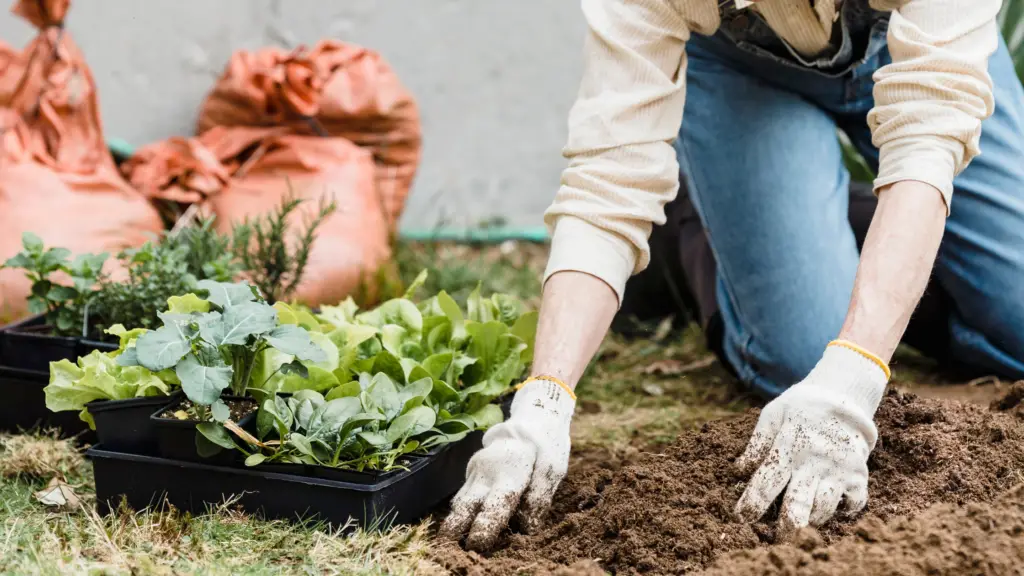
What are the benefits of gardening?
Gardening can provide numerous physical, mental, and social benefits. Some of the benefits of gardening include:
- Exercise: Gardening involves a variety of physical activities, such as digging, planting, weeding, and watering, which can help to improve strength, flexibility, and balance.
- Stress Relief: Being in nature and working with plants can be calming and therapeutic, helping to reduce stress and anxiety.
- Improved Mental Health: Gardening can help to improve mood, reduce feelings of depression and loneliness, and boost self-esteem.
- Nutritious Produce: Growing your own fruits and vegetables can provide access to fresh, healthy produce and can save money on grocery bills.
- Sense of Accomplishment: There is a sense of accomplishment that comes with growing and caring for plants and seeing them thrive.
- Social Interaction: Gardening can provide opportunities for social interaction and connection with others who have similar interests.
- Environmental Benefits: Gardening can help to improve air quality, reduce water usage, and provide habitat for wildlife.
In addition to the personal benefits, gardening can also have environmental and societal benefits. It can help to improve air quality, provide habitat for wildlife, and produce food.
Growing your own fruits and vegetables can also save money and reduce reliance on store-bought produce, which may be grown using pesticides and other chemicals.
Overall, gardening can be an enjoyable and fulfilling hobby that can provide numerous benefits to your physical, mental, and social well-being and you’ll learn a ton along the way!
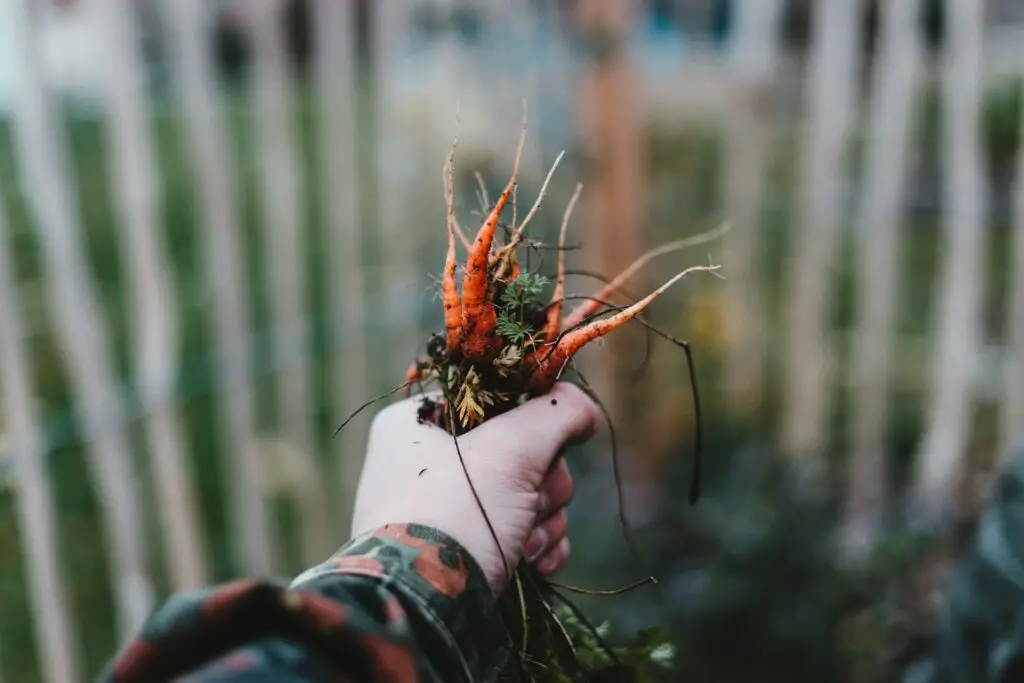
What basic gear do you need to start gardening?
To get started with gardening, you will need a few basic tools and supplies. Here is a list of some essential gear for gardening:
- Garden gloves: Gardening can be tough on your hands, so it’s a good idea to invest in a pair of comfortable, durable gloves to protect them.
- Shovel: A shovel is a must-have for any gardener. It’s useful for digging holes, moving soil, and transplanting plants.
- Hoe: A hoe is a useful tool for breaking up soil, weeding, and cultivating the soil around your plants.
- Rake: A rake is useful for leveling the soil, removing debris, and preparing seed beds.
- Pruning Shears: Pruning shears are used to trim and shape plants, as well as to remove dead or damaged growth.
- Watering Can or Hose: To keep your plants hydrated, you will need a watering can or hose to deliver water to your garden.
- Seeds or Seedlings: Depending on what you want to grow, you will need to purchase seeds or seedlings to plant in your garden.
- Fertilizer: Fertilizer can help to provide the nutrients that plants need to grow and thrive.
There are many other tools and supplies that you may find useful as you get more involved in gardening, such as a wheelbarrow, pruning saw, and trellis.
You can also find many helpful resources online and at local gardening stores to learn more about specific gardening techniques and the gear you will need.
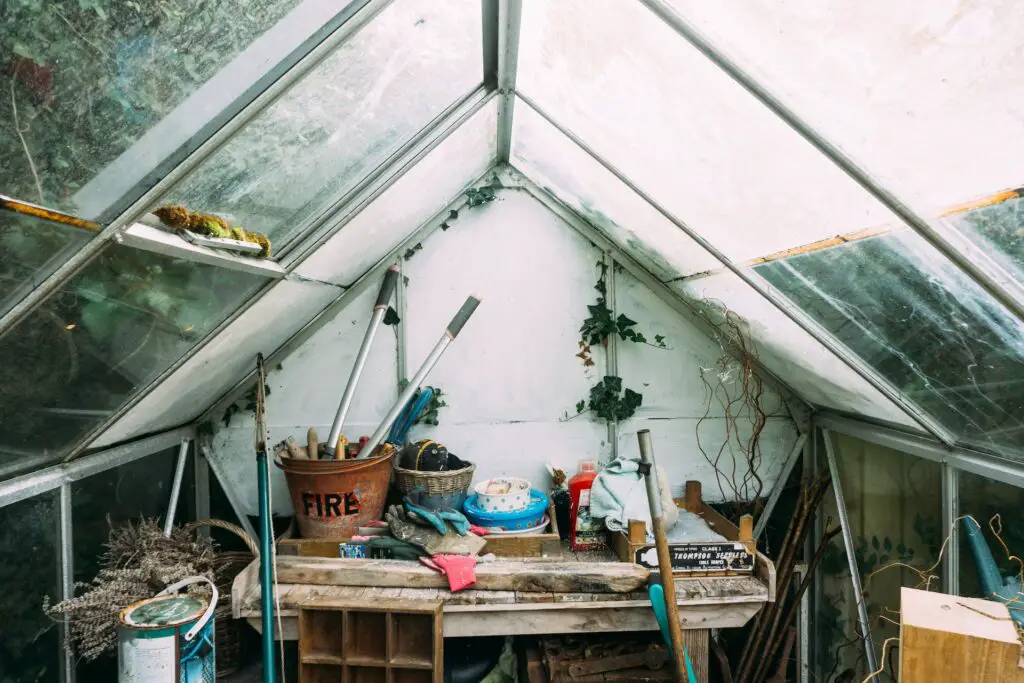
What plants should I grow as a beginner gardener?
- Basil: This herb is easy to grow and can be grown in pots or in the ground. It prefers warm, sunny conditions and well-draining soil.
- Tomatoes: Tomatoes are a popular choice for beginner gardeners because they are relatively easy to grow and produce a lot of fruit. They prefer well-draining soil and full sun.
- Marigolds: These bright, cheerful flowers are easy to grow and thrive in most soil types. They also have the added benefit of deterring pests.
- Radishes: Radishes are a fast-growing, easy-to-grow vegetable that can be grown in a small space. They prefer cool weather and well-draining soil.
- Lettuce: Lettuce is another fast-growing, easy-to-grow vegetable that can be grown in pots or in the ground. It prefers cool weather and well-draining soil.
- Sunflowers: Sunflowers are easy to grow and make a beautiful addition to any garden. They prefer full sun and well-draining soil.
- Zinnias: These colorful flowers are easy to grow and thrive in most soil types. They prefer full sun and well-draining soil.
- Mint: Mint is a hardy herb that is easy to grow and can be grown in pots or in the ground. It prefers moist, well-draining soil and partial shade.
Remember to choose plants that are suitable for your climate and growing conditions. Check out this helpful tool from SouthernLiving.com to find what plants will grow best in your area.
It’s also a good idea to start with a small number of plants and gradually increase the number as you become more comfortable with gardening.
Check out r/gardening on reddit to join a community of over 5 million likeminded gardeners and learn from gardeners of all experience levels.
Not quite ready to start a garden but still love plants? Check out our full article on Keeping Houseplants as a Hobby!
